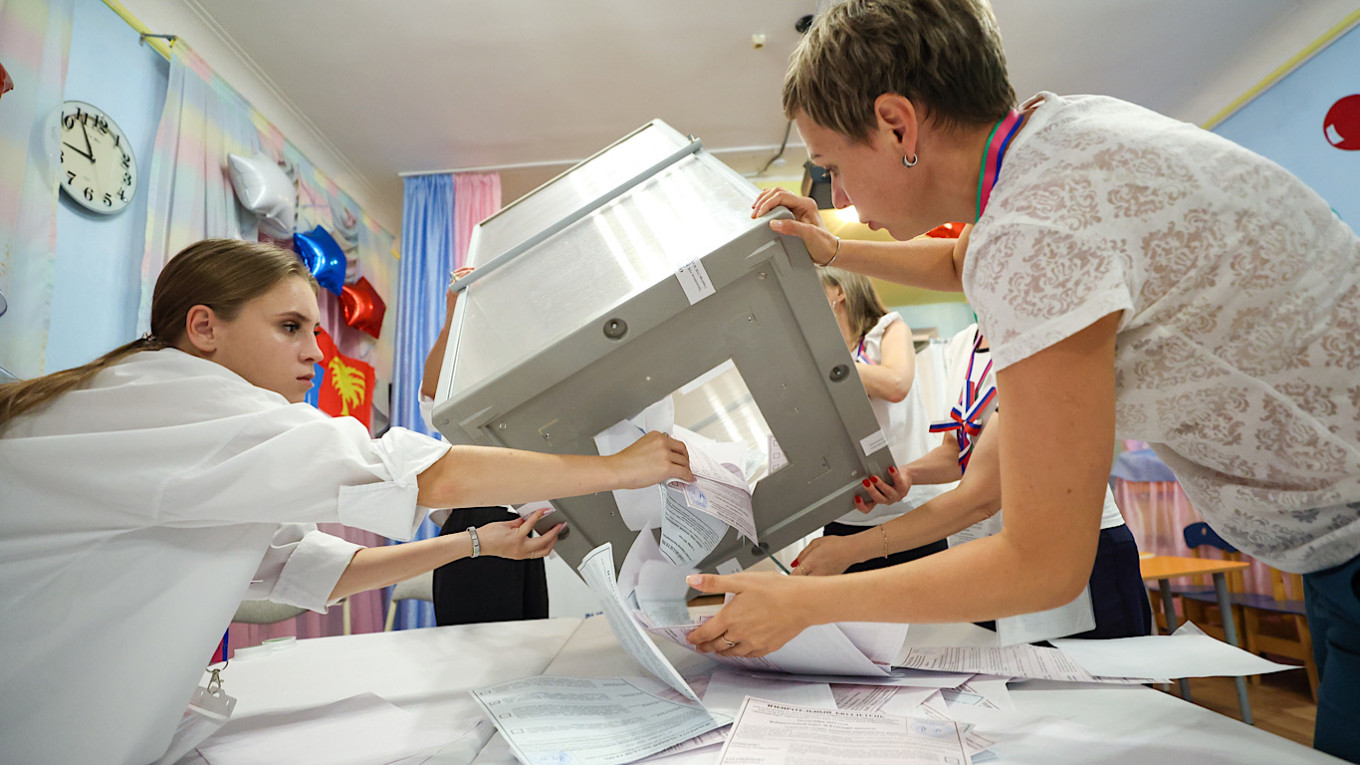Russia’s fifth regional elections during wartime concluded with significant victories for incumbents affiliated with the ruling United Russia party, reinforcing the Kremlin’s influence in a largely predictable outcome.
In total, over 45,000 positions were up for grabs across the country, encompassing 19 governorships, 11 regional legislatures, and 25 city councils. These contests were interpreted as indicative of the political landscape leading up to next year’s parliamentary elections, where United Russia chairman Dmitry Medvedev expressed confidence in the party’s immediate preparations and anticipated “top results.”
This three-day electoral event marked the first since the closure of Golos, previously Russia’s foremost independent election monitoring organization, following the imprisonment of one of its leaders earlier this year.
In border regions adjacent to Ukraine, known for frequent cross-border drone attacks, incumbents achieved substantial victories.
Acting Governor of the Kursk region Alexander Khinshtein garnered 86.9% of the votes, significantly surpassing his ousted predecessor’s 65.3%. In the Bryansk region, Governor Aleksandr Bogomaz was re-elected with 78.8%, improving upon his previous performance from 2020.
These outcomes underscored the Kremlin’s support for their approaches to security and crisis response amid ongoing hostilities with Ukraine.
Rustam Minnikhanov, the long-standing leader of Tatarstan, achieved the highest result in the nation, securing a fourth term with 88.1%.
Conversely, some regions reported narrower margins. In Siberia’s Irkutsk region, Governor Igor Kobzev was re-elected with 60.8% after enduring prolonged tensions with local elites. In the northwestern Arkhangelsk region, Governor Aleksandr Tsybulsky received 67.3%, a slight decrease from his 2020 performance.
In the Far Eastern Kamchatka peninsula, Governor Vladimir Solodov saw a significant drop from 80.5% in 2020 to 63% this year, following criticism regarding his response to a major earthquake in July.
In the Chuvashia republic along the Volga River, regional leader Oleg Nikolayev won re-election as an independent candidate, making him the only non-United Russia official to retain a gubernatorial position in this election cycle.
In legislative races, United Russia fell below the 50% mark in only two regions—Komi and Kostroma—while continuing to dominate elsewhere.
Though United Russia lost several minor local contests in Siberia and the Far East, it maintained control in remote districts, including those in Buryatia, Sakha (Yakutia), and the Khabarovsk region.
Approximately 26 million voters participated in person, with an additional 1.5 million voting online across 24 regions, according to Russia’s Central Election Commission.
The Kremlin later described the elections as a “success.”

